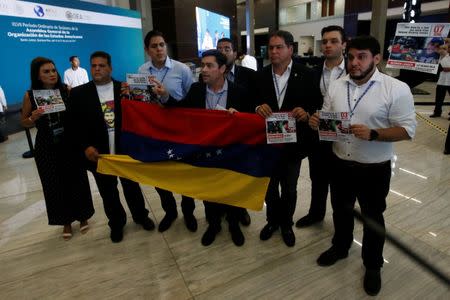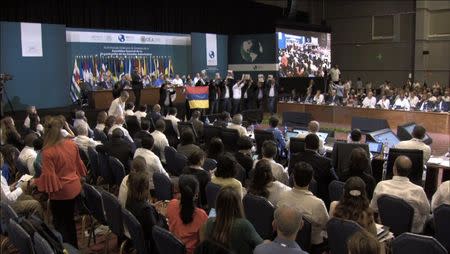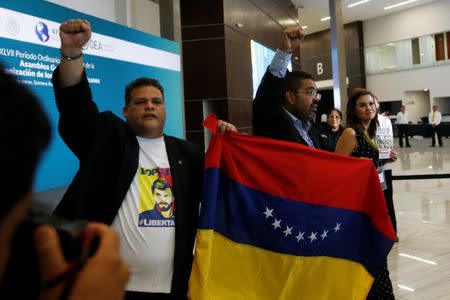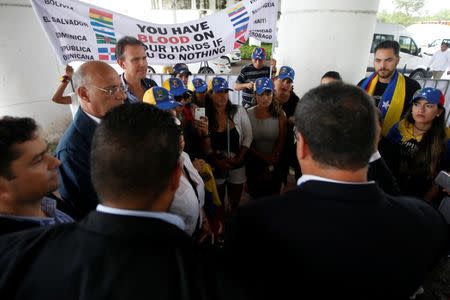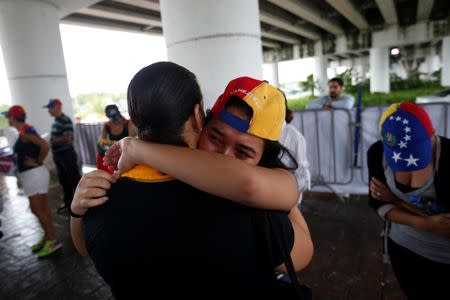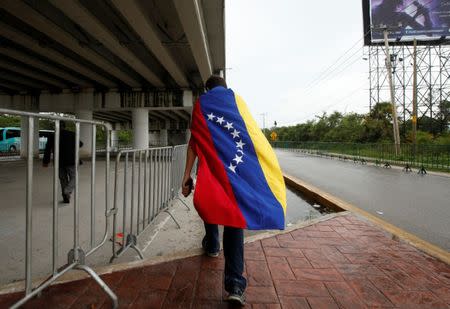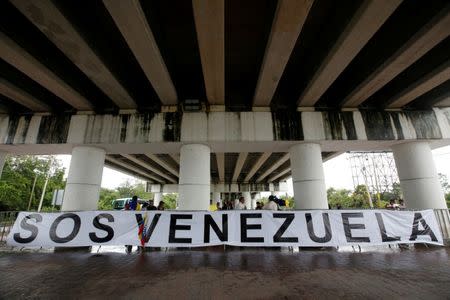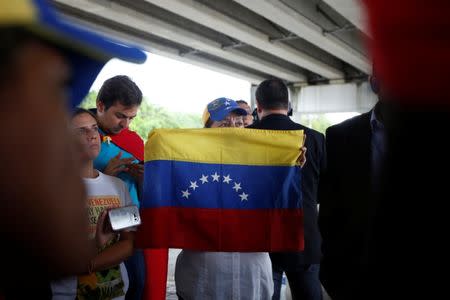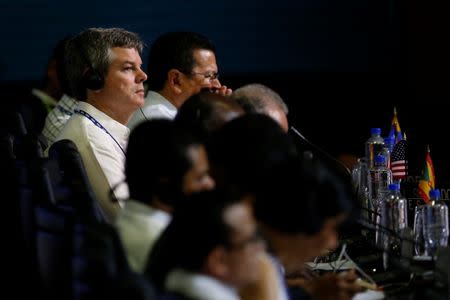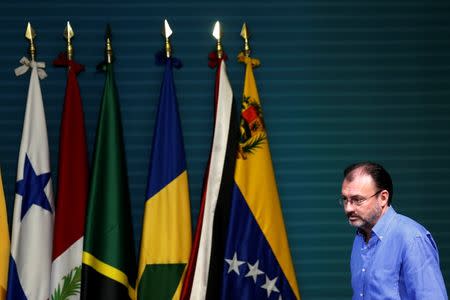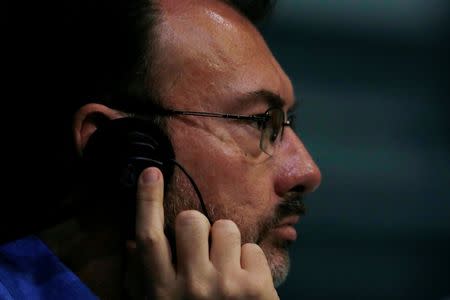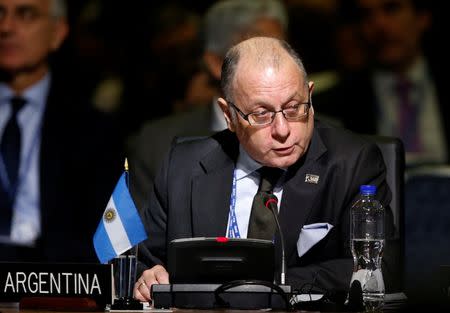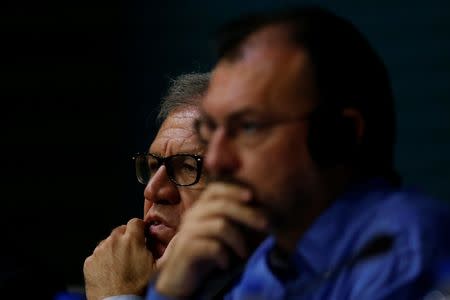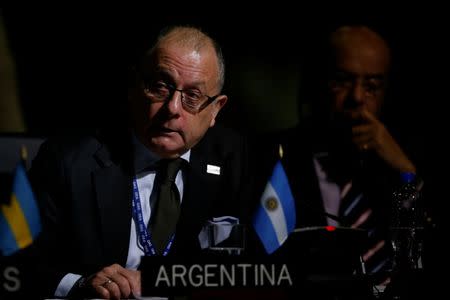OAS nations make last-ditch effort to condemn Venezuela for crisis
By Anthony Esposito CANCUN, Mexico (Reuters) - Mexico and the United States pushed on Wednesday to condemn Venezuela's government for its handling of the political and economic crisis in the South American country, on the final day of a meeting of the Organization of American States, sources told Reuters. Foreign ministers from the 34-nation OAS bloc failed on Monday to agree on a resolution formally rebuking Venezuela, where at least 75 people have been killed in more than two months of protests. Now a group of nations, led by the United States, Mexico and regional allies, may try to include a declaration on Venezuela, tucking it into a more general resolution on human rights, according to two officials close to the closed-door talks. The officials asked not to be identified in order to speak freely. A strongly worded declaration statement criticizing the socialist government of Venezuelan President Nicolas Maduro would likely set the stage for another confrontation with Foreign Minister Delcy Rodriguez, who has fought back hard at every attempt to chastise her nation during the OAS meeting, accusing U.S. allies of being "lapdogs of imperialism." Former Costa Rican President Laura Chinchilla implored her peers to take action on Venezuela. "There is a clear and complete rupture of the constitutional order in Venezuela ... that is why the highest body of this institution must issue a declaration on Venezuela," she said. Twenty states voted to pass the draft resolution censuring Venezuela on Monday, falling short of the 23 votes, or two-thirds majority, needed. But due to the internal rules of the OAS, only 18 votes would be needed if comments on Venezuela are added into a wider resolution already on the table. In a sign that Venezuela may be losing backing, 10 resolutions that Maduro's government presented on Monday, only minutes before a deadline, were unanimously rejected for discussion late Tuesday night, a source at the OAS and another at Mexico's foreign ministry said. Maduro accuses opponents of seeking his violent overthrow with U.S. support, similar to a short-lived 2002 coup against his popular predecessor Hugo Chavez. He has called for the creation of a super-body, or constituent assembly, with powers to overhaul the constitution, in voting set for the end of July. Four years of recession caused by failing socialist economic policies plus the decline in global oil prices have battered Venezuela's 30 million people and made Maduro deeply unpopular, however. Opposition leaders, who say they will boycott the assembly, accuse Maduro of leading the OPEC member toward dictatorship by delaying elections and jailing opposition activists, while food and medicine run short and inflation is believed to be in the triple digits. (Reporting by Anthony Esposito; Editing by Tom Brown and Lisa Shumaker)
